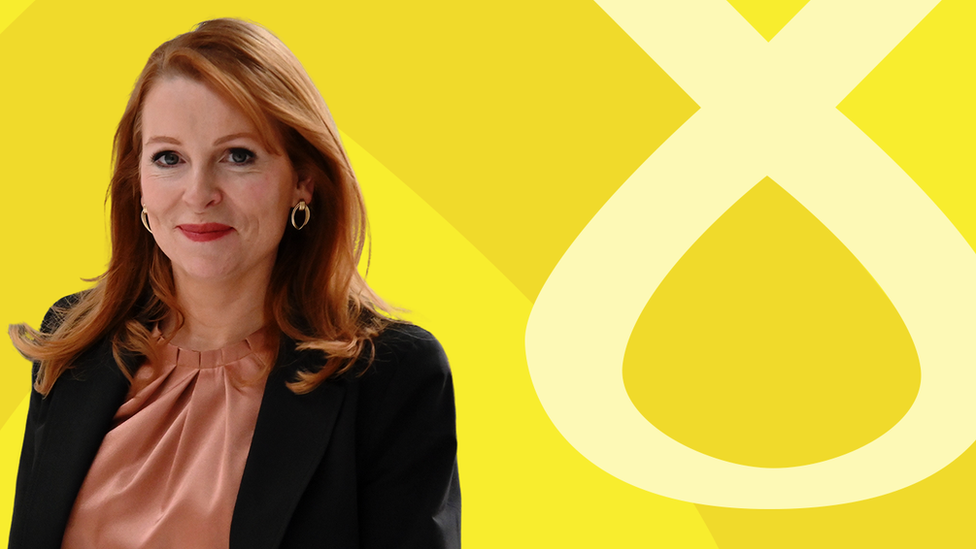Curtice: All to play for in SNP leadership contest
- Published
‘A very interesting debate’ - Meet the SNP members choosing Scotland’s next leader
Since Nicola Sturgeon announced on 16 February that she was to stand down as SNP leader and Scotland's first minister, there have been numerous polls of how voters in Scotland would vote if they had a say in who should take over.
These have suggested that Kate Forbes is most popular among the Scottish public as a whole.
On average, four polls conducted over the last week or so have found that 30% would prefer Kate Forbes, 20% Humza Yousaf, and 10% Ash Regan. That said, as many as 40% have either said that they don't know or that they do not have a preference for any of the candidates.
However, the battle to become Scotland's next first minister will not be decided by voters as a whole.
Rather, it will be determined by the choice made by members of the SNP, who, according to one recent estimate, now number just under 80,000 people.
Their views may not necessarily reflect the views of Scots in general. Indeed, the polls have shown that, even among those who would currently or have recently voted SNP, the picture is rather different, with Mr Yousaf seemingly neck and neck with Ms Forbes.

Who are the SNP leadership candidates?


Meanwhile, the one poll to date of SNP members themselves has painted a different picture again.
According to Savanta, 31% were minded to vote for Humza Yousaf, 25% for Kate Forbes, and 11% for Ash Regan.
However, the sample was relatively small (just over 500 people), the poll was conducted a fortnight ago long before any of the televised debates, while at that stage nearly one in three (32%) did not know how they would vote.
It looks as though there is plenty to play for; that perhaps SNP members may be somewhat more inclined than SNP voters to back Mr Yousaf rather than Ms Forbes; but that maybe everything could turn on the unknown second preferences of Ms Regan's supporters.
But what otherwise do we know about members of the SNP? The most recent detailed information comes from an academic survey of the membership conducted just after the last UK general election by Prof Tim Bale of Queen Mary University and Prof Paul Webb of Sussex University.
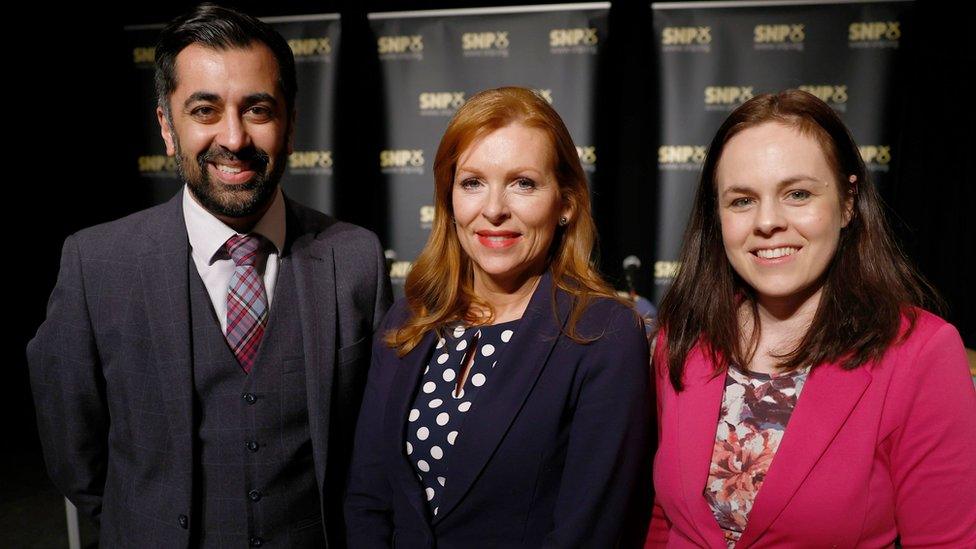
Kate Forbes, Ash Regan and Humza Yousaf have been taking part in a series of party hustings and televised debates
This suggests that, as is true of most political parties, SNP members are older and more male than either the general public or SNP supporters.
Men represent 58% of the SNP membership, compared with half of SNP supporters and a little less than half of the adult population.
As many as 71% of SNP members are over 50. In contrast only around a half of all Scots fall into that age bracket, while, according to the Scottish Social Attitudes survey, the proportion of SNP supporters who do so is just 40%.
This might be thought to be Ms Forbes' advantage, as older voters are less likely to back the Gender Recognition Bill that has been the subject of much recent controversy, and are somewhat more likely to share her doubts about gay marriage.
However, the views of older members of the SNP may not be the same as those of voters in general. Indeed, an earlier academic survey by Prof James Mitchell of Edinburgh University and colleagues found that only 14% agreed that same sex couples should not be allowed to adopt children.
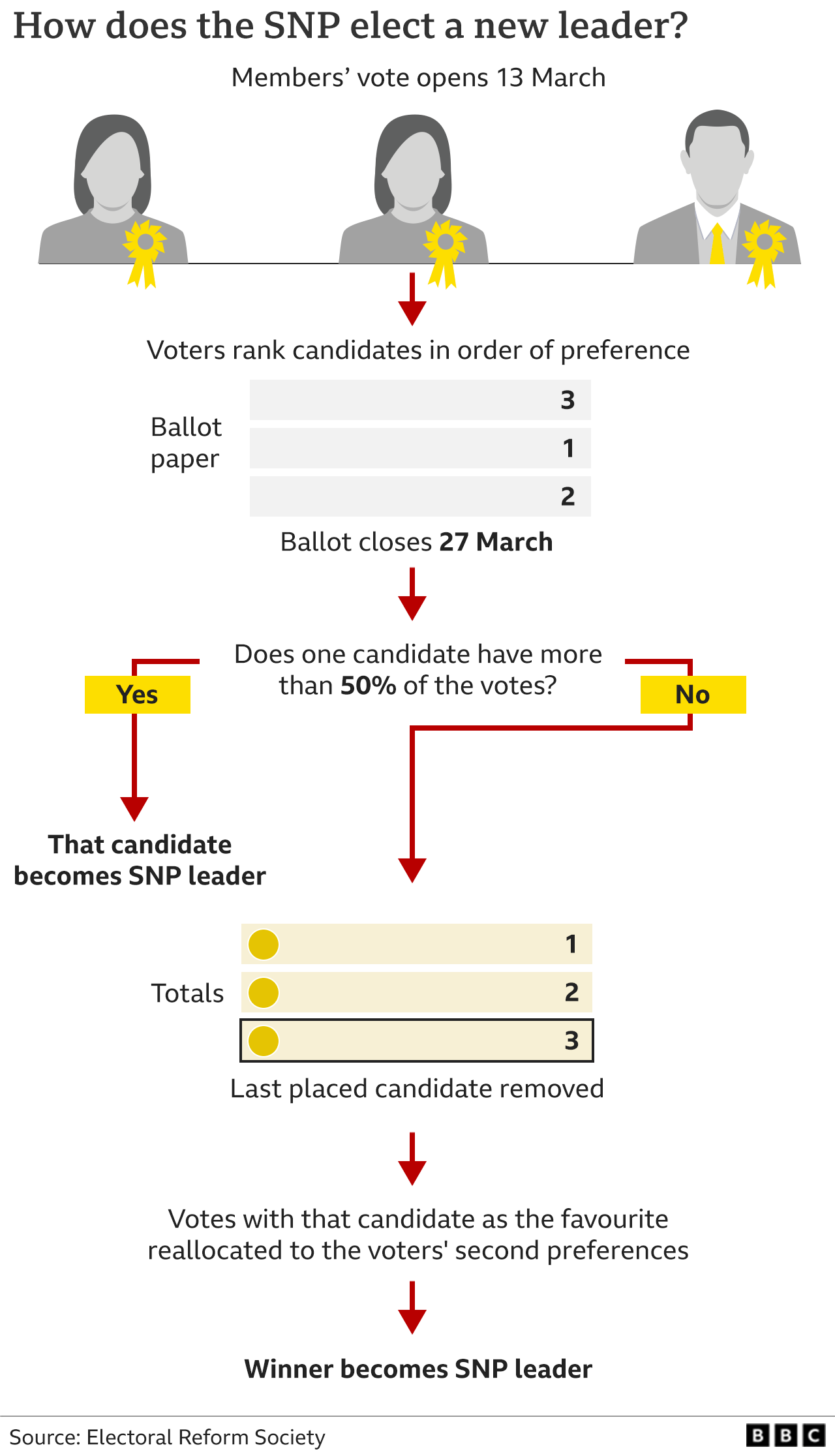
Meanwhile, the Queen Mary/Sussex University study found that SNP members were more liberal on social issues, both as compared with Scots in general and SNP supporters in particular.
For example, only 24% agree that "censorship of films and magazines is necessary to uphold moral standards", compared with (according to the Scottish Social Attitudes survey), 47% of SNP supporters and 50% of the general public.
SNP members are also markedly left wing. As many as 89% agree that "the government should redistribute income from the better off to the less well off", but only 59% of SNP supporters and 55% of all Scots take that view.
It is therefore, perhaps, not surprising that all of the candidates have been keen to indicate their support for greater economic equality, albeit with different ideas about how to achieve it.
Still, perhaps for SNP members what will matter most of all is which of the candidates they think is most likely to deliver independence. And their views on that are, so far at least, largely unknown.
Sir John Curtice is Professor of Politics, Strathclyde University, and Senior Research Fellow, ScotCen Social Research and 'The UK in a Changing Europe'
- Published14 March 2023
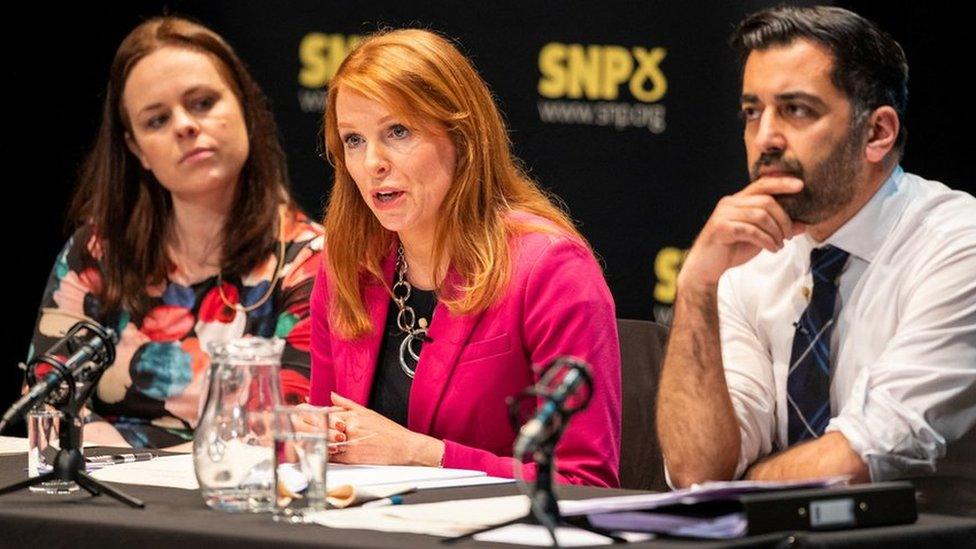
- Published28 March 2023
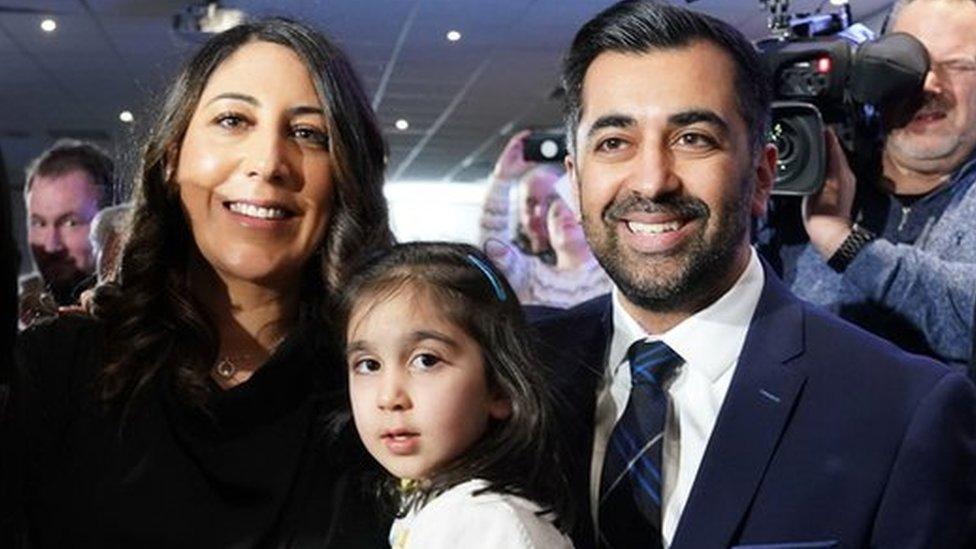
- Published28 March 2023
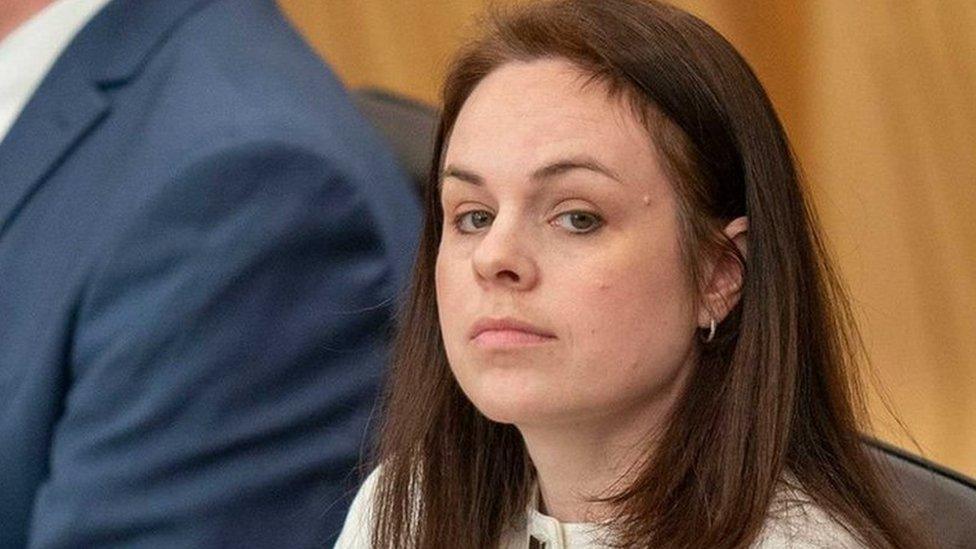
- Published24 March 2023
